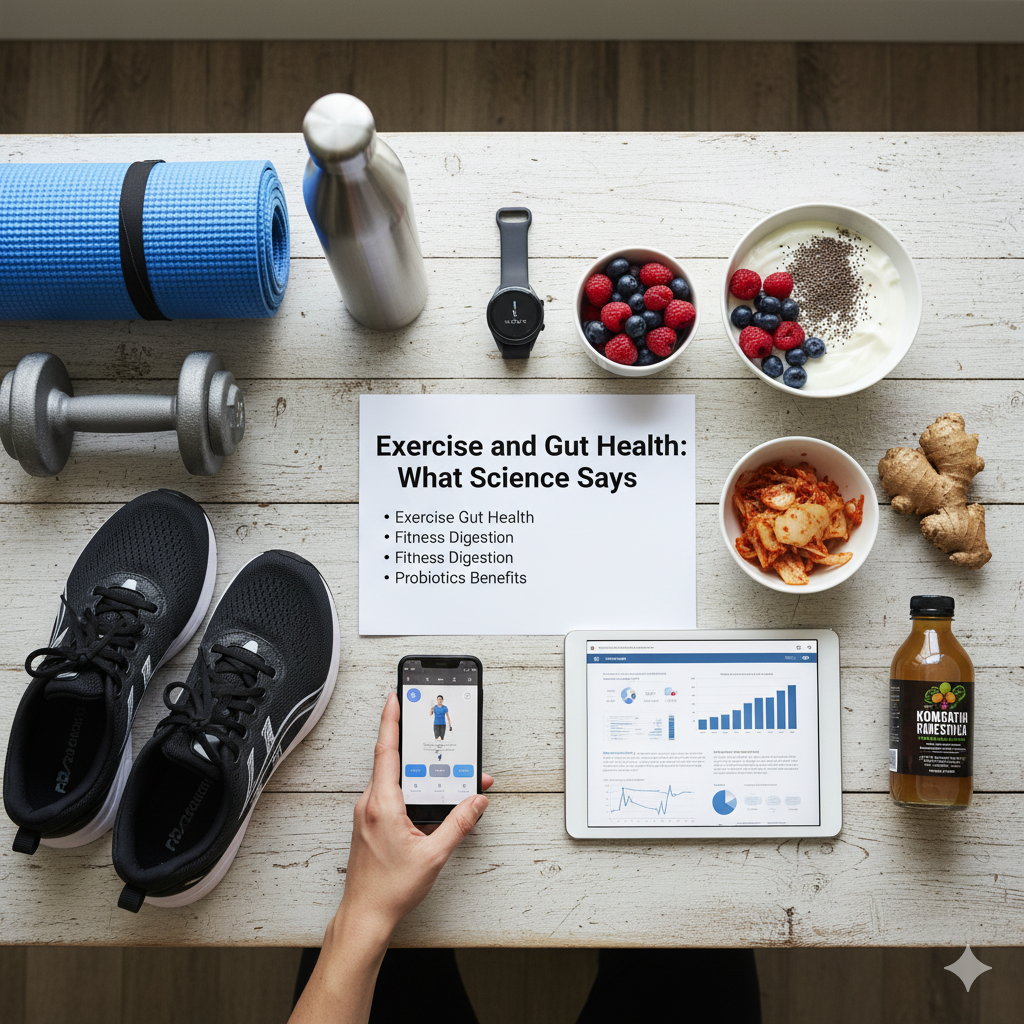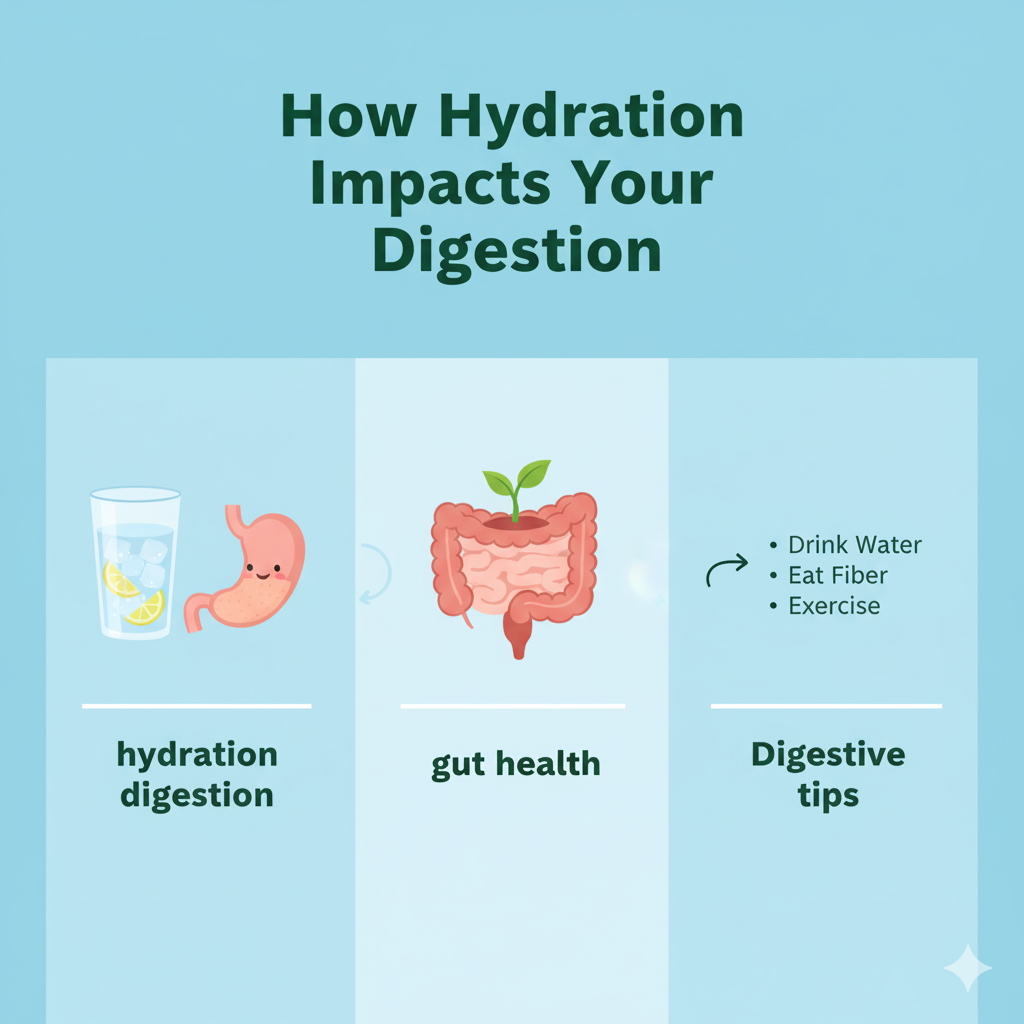When people think about exercise, they often focus on building muscle, burning fat, or improving heart health. But in recent years, researchers have discovered that physical activity also has a profound impact on something often overlooked: gut health.
Your gut is home to trillions of bacteria, fungi, and microorganisms that make up the gut microbiome. This complex ecosystem influences digestion, metabolism, immunity, and even mental health. And science now confirms that exercise—just like diet—can shape and improve your microbiome.
In this article, we’ll explore what science says about the connection between exercise and gut health, how fitness routines can improve digestion, and the role of probiotics in maximizing these benefits.
The Gut Microbiome: Why It Matters
The gut microbiome is like an internal garden. When diverse and balanced, it:
- Breaks down food and extracts nutrients
- Supports immune system function
- Produces vitamins like B12 and K2
- Regulates metabolism and weight
- Influences mood and brain health through the gut-brain axis
But when the microbiome becomes imbalanced—often due to poor diet, stress, lack of sleep, or inactivity—problems like bloating, constipation, inflammation, and even chronic illness can arise.
This is where exercise comes in as a powerful modulator.
How Exercise Improves Gut Health
1. Increases Microbial Diversity
Studies show that people who exercise regularly have a more diverse gut microbiome compared to sedentary individuals. Greater diversity means more resilience against harmful bacteria and better digestion.
2. Reduces Gut Inflammation
Moderate exercise lowers inflammation throughout the body, including the gut. This helps prevent issues like irritable bowel syndrome (IBS) and inflammatory bowel disease (IBD).
3. Enhances Digestion and Motility
Physical activity stimulates the muscles of the digestive tract, helping food move more efficiently and reducing constipation.
4. Supports Weight Management
By balancing gut bacteria, exercise helps regulate metabolism, appetite, and fat storage—making it easier to maintain a healthy weight.
5. Boosts Short-Chain Fatty Acids (SCFAs)
Exercise encourages bacteria that produce SCFAs like butyrate, which strengthen the gut lining, reduce inflammation, and improve energy metabolism.
Best Types of Exercise for Gut Health
Not all workouts affect digestion in the same way. Here’s what science suggests:
- Aerobic Exercise (Cardio): Running, cycling, and swimming improve gut microbiome diversity and increase beneficial bacteria.
- Strength Training: Builds muscle mass, which indirectly supports metabolism and gut balance.
- Yoga and Pilates: Gentle movements and stretches reduce stress, support digestion, and stimulate the gut-brain axis.
- Walking: Even light physical activity, like a 20-minute walk after meals, can improve digestion and reduce bloating.
Tip: Over-exercising can backfire. Intense, prolonged workouts without recovery may increase gut permeability (“leaky gut”) and cause digestive distress. Balance and moderation are key.
Exercise Timing and Digestion
The timing of exercise can also affect gut function:
- Before Meals: Light exercise before eating can stimulate appetite and prepare digestion.
- After Meals: Gentle activity (like walking) improves nutrient absorption and reduces bloating.
- During Digestion: Avoid high-intensity workouts immediately after eating, as this may cause cramps or reflux.
The Role of Probiotics in Fitness and Digestion
Probiotics are live microorganisms that support gut health, and when paired with exercise, they can amplify digestive and overall health benefits.
Benefits of Probiotics for Active People:
- Improved Nutrient Absorption: Helps the body make better use of proteins, vitamins, and minerals.
- Reduced Inflammation: Supports recovery and reduces exercise-related oxidative stress.
- Stronger Immunity: Active individuals are less likely to experience gut-related illnesses.
- Better Hydration & Electrolyte Balance: Some probiotic strains improve fluid absorption in the intestines.
Best Probiotic-Rich Foods for Fitness Enthusiasts:
- Yogurt
- Kefir
- Sauerkraut
- Kimchi
- Kombucha
- Miso soup
For athletes or those with intense fitness routines, probiotic supplements can also be considered, but whole-food sources are often the best starting point.
Practical Digestive Tips for Active People
- Hydrate Properly – Dehydration slows digestion and increases constipation risk.
- Eat Fiber-Rich Foods – Support beneficial bacteria with whole grains, fruits, and vegetables.
- Don’t Skip Recovery – Allow rest days to prevent stress on the gut lining.
- Balance Prebiotics and Probiotics – Feed your gut bacteria (prebiotics like garlic, onions, bananas) alongside probiotics.
- Listen to Your Body – If certain workouts cause digestive discomfort, adjust intensity or timing.
What Science Says: Key Studies
- Journal of Applied Physiology (2019): Found that endurance athletes had significantly higher gut microbiome diversity compared to non-athletes.
- Nature (2014): Demonstrated that exercise increases levels of SCFA-producing bacteria, which reduce gut inflammation.
- Frontiers in Nutrition (2020): Highlighted that yoga and low-intensity exercise improved gut-brain communication and reduced IBS symptoms.
- Gut Microbes Journal (2021): Showed that combining probiotics with moderate exercise improved immune function and overall digestion.
Sample 3-Day Gut-Friendly Fitness Plan
Day 1 – Cardio + Gut-Friendly Foods
- Morning jog (30 minutes)
- Breakfast: Probiotic smoothie with kefir, banana, and flaxseeds
- Lunch: Salmon with steamed broccoli and sauerkraut
- Dinner: Lentil soup with turmeric and ginger
Day 2 – Strength + Probiotics
- 45-minute weightlifting session
- Breakfast: Greek yogurt with chia seeds and berries
- Lunch: Grilled chicken with brown rice and kimchi
- Dinner: Quinoa bowl with roasted vegetables and miso dressing
Day 3 – Yoga + Light Cardio
- 30 minutes of yoga + 20 minutes walking
- Breakfast: Oatmeal with bananas and walnuts
- Lunch: Turkey wrap with spinach and hummus
- Dinner: Bone broth soup with fermented veggies on the side
Conclusion
Science is clear: exercise and gut health are deeply connected. Regular physical activity not only strengthens your muscles and heart but also nourishes your microbiome, improves digestion, and supports long-term wellness.
When paired with a gut-friendly diet rich in probiotics, prebiotics, and anti-inflammatory foods, fitness becomes a powerful tool for building digestive resilience.
So whether you’re lifting weights, running, practicing yoga, or simply walking after meals, remember that every move you make can support your gut and your overall health.





“This is such an interesting topic! It’s amazing how exercise not only benefits our muscles and heart, but also has a big impact on gut health. I’d love to learn more about the scientific evidence behind this connection.”